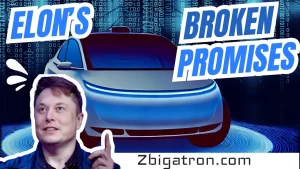I just got back from my trip to the Vatican where I participated in an AI Forum with people from all walks of life. We got together to discuss many issues surrounding the growth of Artificial Intelligence and what this means for the Catholic Church.
It was a great experience for all of us present there. I think the networking aspect was the stand out factor for me, though. I got to talk to a lot of interesting people and hopefully the contacts I made there will last a lifetime.

One such interesting person I met was the current CEO of Exodus 90, Jamie Baxter. Exodus 90 is a popular 90-day spiritual exercise designed for men seeking spiritual growth, self-discipline, and freedom from attachments.
Jamie approached me after a particular workshop on AI and consciousness and we got talking about our views on how things are changing a lot around us in this new age of generative AI.
The Push to have AI Everywhere
Jamie told me that he is feeling pressure to have AI implemented in his organisation. Everyone is using it, everyone is raving about it, and so he asked me what my thoughts were on all of this.
It’s a great question.
No company nowadays can get away without mentioning that they use AI somewhere… anywhere! It’s a buzz word that’s being thrown around more than confetti at a New Year’s party. Here’s a video I recently posted on my LinkedIn page reacting to this:
Truly, people are starting to feel pressure to use AI just for the sake of it.
My response to Jamie was to mention what I always tell my students: “Before using AI, have a clear use case for it and make sure that it will contribute to your product in a positive way.” There is absolutely no point in using it just for the sake of using it. That’s just not how innovation and quality of products works.
Unfortunately, we take things too much on face value these days.
Stick to Simplicity
Jamie then said to me that he feels like he should keep his product (app and website tied to Exodus 90) AI free because it will feel “simpler” that way.
This is what piqued my interest. He touched on something important I had never considered before. We elaborated on this.
Simplicity in itself is a feature. There is a beauty to it. Famously, Steve Jobs built his own products around this notion:
Simple can be harder than complex; you have to work hard to get your thinking clean to make it simple.
Currently, it feels like AI is being shoved down our throats. There’s definitely hype surrounding it (as I’ve written before) and it’s hard to see where we currently stand with it. It’s hard to make clear and unbiased judgments about its capabilities and about its future. Indeed, it’s a convoluted mess that is not imitative of a classic Steve Jobs product: minimalist and user-friendly.
So, I concurred with Jamie. Simple is good! Don’t bring AI into your company if you’re going to lose a certain integrity to your product.
The Classic Handmade Tag on Products
Then Jamie said something that made me realise immediately that our conversation was going to end up as the topic of my next blog post: “I want to keep my products handmade”.
That’s a great comment.
Manufactured products (be it furniture, clothes, plastic items) are soulless. They’re a sign of the times that prefer expediency and economy over intimacy and craftsmanship. Take a look at the modern buildings around us. Cheap, lifeless, bland, dispensable. Compare that to the architecture of days gone by. People still admire it.
I’ve written before about the fact that AI will never be able to create high art. AI is just an algorithm that works on statistics and regurgitates and shuffles around what it’s already been given in its training data. If it does create something new, it happens completely by chance.
Why is it that we prefer handmade things over those made on an assembly line? Craftsmanship and quality, for sure. But there’s also that element of a personal touch. Handmade items often feel more personal and can evoke stronger emotions or a sense of warmth and nostalgia. Deep down we feel a connection to another person.
Sometimes these emotions that I’m describing, these feelings of warmth, happen without us realising it. Not many people think about why they prefer handmade over anything else. But undoubtedly, handmade is a selling tool in the marketplace of the world.
Will this also not be the case with generated content online soon? Surely!
Maybe one day companies will stop spewing out how much AI they use in their products and will start to emphasise the human element in their content. Maybe such a shift in mentality will come about soon once all this hype dies down around AI? I think it just might.
Much like we crave human contact in real life in the age of social media, we will start to crave the personal touch in generated content in the products that surround our everyday lives. We want that warm feeling inside of us.
What a beautiful discussion I had with Jamie. Much appreciated, friend.
To be informed when new content like this is posted, subscribe to the mailing list (or subscribe to my YouTube channel!):
(Note: If this post is found on a site other than zbigatron.com, a bot has stolen it – it’s been happening a lot lately)



